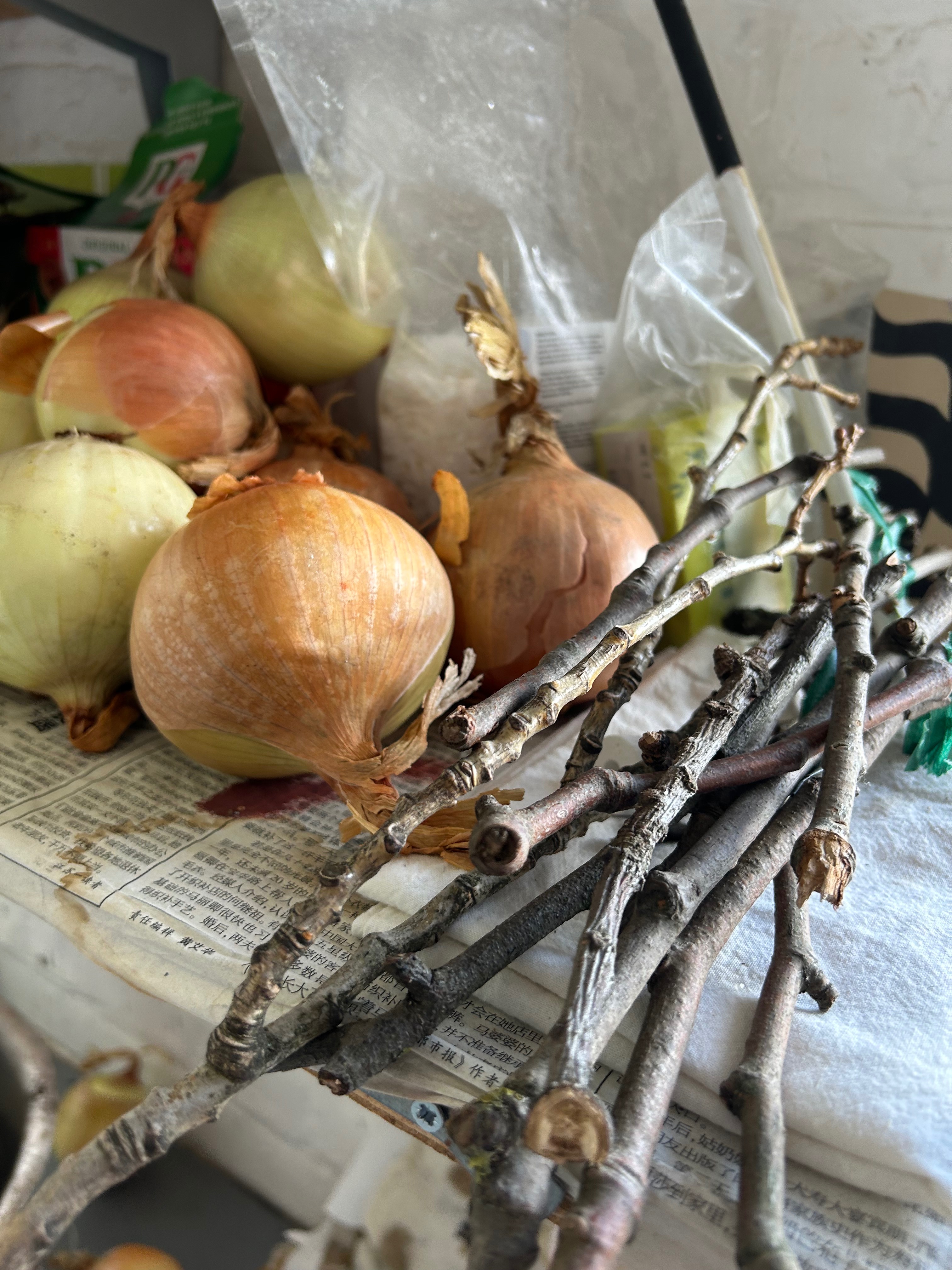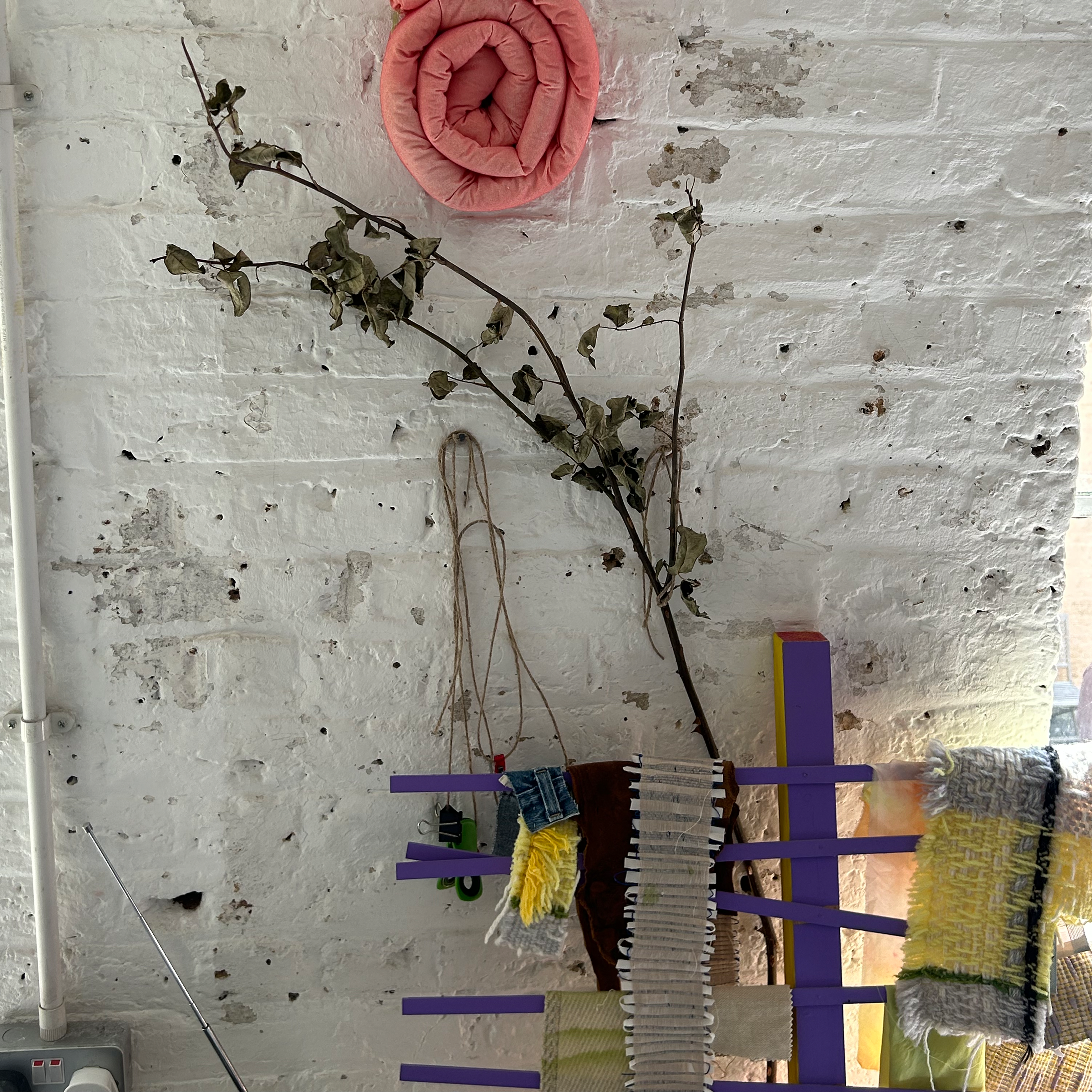
We’re learning how to build a practice that is low-impact and ethical, challenging outdated systems along the way. Asking questions is central to our process — from sourcing to design to production.
We release small, curated collections, often altering or repurposing existing materials.
We source fabrics and yarns from suppliers that provide certified materials. This commitment means working within certain limitations in color and fiber availability — something we take into account at the design stage.
We're continuously working to improve our quality, aiming to make long-lasting garments using only natural fibers or repurposed textiles.
We release small, curated collections, often altering or repurposing existing materials.
We source fabrics and yarns from suppliers that provide certified materials. This commitment means working within certain limitations in color and fiber availability — something we take into account at the design stage.
We're continuously working to improve our quality, aiming to make long-lasting garments using only natural fibers or repurposed textiles.

Natural dyeing innovations.
We innovate by returning to the roots of ancient techniques. Our natural dyeing methods are developed from plant-based colors, using zero artificial ingredients and no harmful chemicals. Each piece reflects the influence of time, place, and season.
Time and location.
We are Hackney, London based studio. Our process is intentionally slower. We often order fabric once an order is placed to avoid overproduction. If a garment is damaged or the dye wears off, we ask our customers to send the item back so we can help with restoration.
We innovate by returning to the roots of ancient techniques. Our natural dyeing methods are developed from plant-based colors, using zero artificial ingredients and no harmful chemicals. Each piece reflects the influence of time, place, and season.
Time and location.
We are Hackney, London based studio. Our process is intentionally slower. We often order fabric once an order is placed to avoid overproduction. If a garment is damaged or the dye wears off, we ask our customers to send the item back so we can help with restoration.

Custom-made and sizing.
We acknowledge the need to improve our garment sizing. We're expanding our made-to-order service, inviting more customers to participate in custom sizing to ensure a better fit for everyone.
We acknowledge the need to improve our garment sizing. We're expanding our made-to-order service, inviting more customers to participate in custom sizing to ensure a better fit for everyone.



Pricing.
We do not offer seasonal sales because our prices reflect the true value of our craftsmanship, time, materials, and location. Each piece is priced fairly, honoring the skill
and care that goes into its creation.
What we need is less.
Real change is slow and cumulative, and it requires fostering and care. Being sustainable means not rushing to buy new things. It's about maintaining what you already own and learning the best ways to care for it.
- Ensuring your belongings last.
- Questioning if you really need a new item.
- Not seeking validation from society. [1]
1. Consumed The Need For Collective Change: Colonialism, Climate Change, & Consumerism
We do not offer seasonal sales because our prices reflect the true value of our craftsmanship, time, materials, and location. Each piece is priced fairly, honoring the skill
and care that goes into its creation.
What we need is less.
Real change is slow and cumulative, and it requires fostering and care. Being sustainable means not rushing to buy new things. It's about maintaining what you already own and learning the best ways to care for it.
- Ensuring your belongings last.
- Questioning if you really need a new item.
- Not seeking validation from society. [1]

